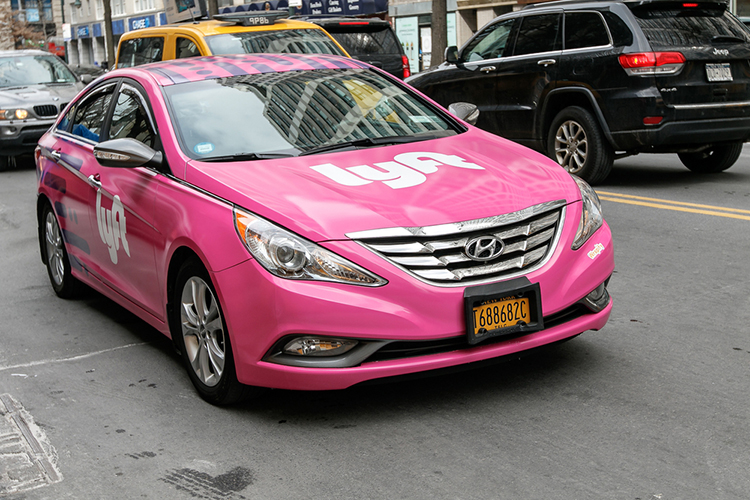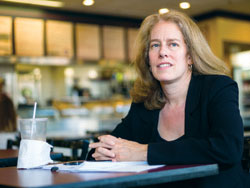Gig economy companies hope to expand upon California labor law win

Image from Shutterstock.com.
Gig economy companies hope to leverage their recent California ballot measure victory to usher in laws across the country classifying their workers as independent contractors, and some experts say they have the momentum to succeed on that front.
On Tuesday, Nov. 3, voters in California approved the measure, Proposition 22, which allows app-based companies like Uber, Lyft and DoorDash to continue classifying their ride-sharing and delivery drivers as independent contractors rather than employees. The measure passed with approximately 58% support, although the results remain uncertified as of publication.
Meanwhile, workers’ rights advocates acknowledge the passage of Proposition 22 last week was a significant defeat, but vow to keep fighting at the state level and express hope a new presidential administration will generate positive results at the federal level.
Prop 22 provides app-based drivers with a wage floor and some healthcare subsidies, among other benefits, though far less protections than the workers would receive as employees.
The ballot measure was the gig economy’s response to a 2020 California law that codified a state supreme court decision requiring employers to conduct a worker-friendly ABC test to determine whether a worker is an employee or independent contractor. Supporters of Prop 22 spent more than $200 million to advocate for its passage, far outpacing the opposition’s spending.
Uber CEO Dara Khosrowshahi said on an earnings call last Thursday that the company would be “more loudly advocating for new laws like Prop 22, which we believe strike the balance between preserving the flexibility that drivers value so much, while adding protections that all gig workers deserve.”
“And it’s a priority for us to work with governments across the U.S. and the world to make this a reality,” Khosrowshahi added, according to TechCrunch.
Tony Xu, DoorDash’s CEO and co-founder, shared a similar message in a blog post following Prop 22’s victory.
“We are committed to working with lawmakers across the country and in Washington to develop tailored solutions that reflect the 21st century economy, and provide certainty to everyone who has come to benefit from the gig economy, including Dashers, merchants, and customers,” Xu wrote.
Richard Meneghello, an Oregon-based attorney at Fisher Phillips, says he believes the success of Prop 22 gives the gig economy companies a strong hand to play when proposing legislation with similar language in other jurisdictions.
“It was overwhelmingly approved by probably the most progressive state in the country, which I think would give them the support they need to make the case to other states that this seems to be the way that folks want the gig economy companies to be treated and the way gig economy employees want to be treated,” says Meneghello, author of the management-side firm’s Gig Employer Blog.
Brian Chen, a staff attorney at the National Employment Law Project, says he worries that Prop 22’s victory sets a troubling precedent “that any corporation with enough money can buy their way out of bothersome laws and write their own regulations.”
But he is hopeful the defeat in California will motivate workers’ rights advocates to even more actively fight against Prop 22-like ballot measures or legislation proposed in other states.
Chen says advocates “will need to organize like hell and get out the message that gig workers really are struggling, they have been exploited by so many of these companies, and ultimately, the way forward is not a kind of problematic in-between compromise.”

Boston attorney Shannon Liss-Riordan represents Uber and Lyft drivers. ABA Journal file photo by Carl Tremblay.
Michael P. Maslanka, an assistant professor at UNT Dallas College of Law, says he initially thought the disruptive impact COVID-19 has had on the economy might push states toward a more labor-friendly approach to worker-classification issues.
But the Prop 22 results in California indicate that was not the case, he says, and make it far less likely other states would pursue legislation making it harder for companies to classify their workers as independent contractors.
“When 58% of voters in a deeply blue state reject the idea of imposing employee status, I think that pretty much tells you where things are headed,” says Maslanka, a labor and employment law expert.
Despite the loss in California, workers’ rights advocates say one reason for optimism is they anticipate a Joe Biden presidential administration will be much more worker-friendly than the Trump administration.
In September, Trump’s Labor Department announced a proposed rule it says would clarify how an employee is defined under the Fair Labor Standards Act.
Shannon Liss-Riordan, a Boston-based lawyer who frequently has sued gig economy companies, says the rule reads as if it were taken from the “gig economy’s playbook.”
“This new rule the Department of Labor has proposed would make it much harder to challenge independent contractor misclassification if courts were to follow this regulation,” says Liss-Riordan, a partner at Lichten & Liss-Riordan.
“My hope is the Biden administration could unwind whatever the Trump administration is trying to push through in these last days of 2020,” she adds.
Chen says he, too, “expects that a Biden administration would aggressively enforce gig workers’ rights as employees under existing federal laws.”
Additionally, workers’ rights advocates say if the Democrats could wrest control of the Senate by winning two run-off elections in Georgia early next year, it would open the door to Congress potentially approving legislation regarding employee classification.
Two Democratic senators and a Democratic representative introduced a bill in late September that would create a national ABC test to determine whether a worker is an independent contractor.
“It would be much-needed relief for us to see stronger protections on the federal level to ensure that workers for these massive companies get the basic protections that we as a society have decided employees should have,” Liss-Riordan says.
But Meneghello says even if the Democrats gain control of the Senate, he is skeptical “business-friendly” members of the party would vote for a bill with a national ABC test. “It might be a bridge too far for them,” he says.
Meneghello expects most of the worker-classification debate in the next four years will play out at the state level.
See also:
ABAJournal.com: “California high court ruling may compel gig economy employers to convert contractors to employees”
ABAJournal.com: “What happens to gig workers when a California Assembly bill meets the coronavirus?”
ABAJournal.com: “Why exotic dancers and other gig workers are seeing employment law gains, COVID-19 losses”
ABAJournal.com: “How to plan ahead for compliance and privacy projections”



